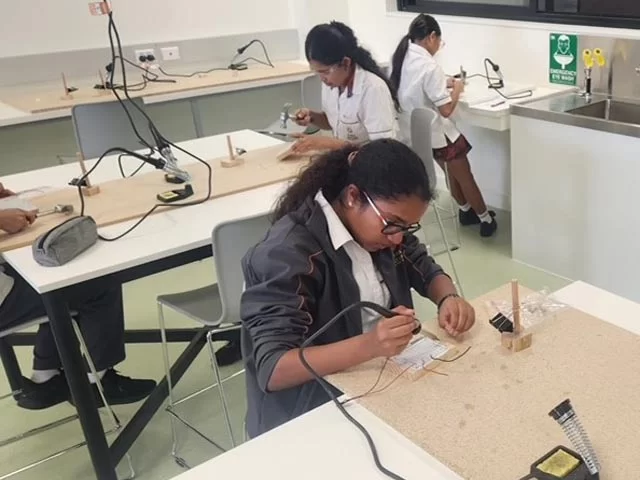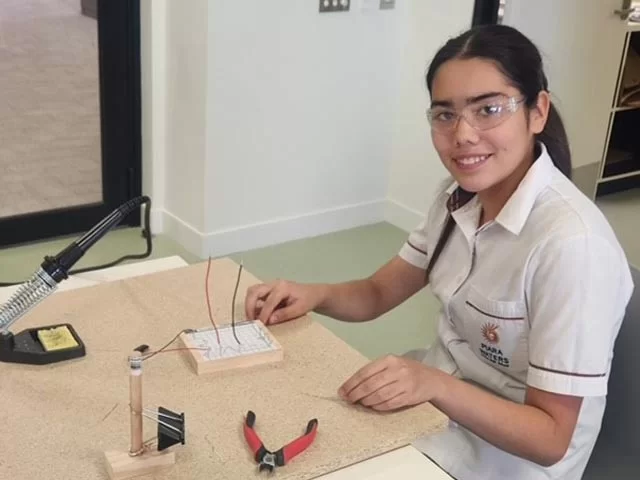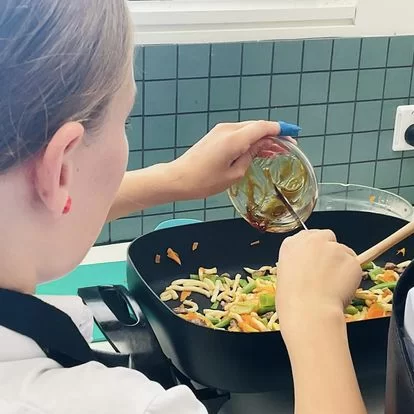- (08) 6174 2777
- piarawaters.shs@education.wa.edu.au
- 8 Southampton Drive Piara Waters, WA 6112




Technologies span two specific content areas: Digital Technologies as well as Design & Technologies. Both courses of study seek to develop student’s creativity, critical thinking, and problem-solving skills and provide them with the knowledge and skills necessary to thrive in an increasingly interconnected and technology-driven world.
The Digital Technologies program focuses on developing a deep understanding and skills in computational thinking, which is essential in today’s rapidly evolving world. Students will have the opportunity to further expand their knowledge of computational thinking by tackling complex problems and engaging with a wide range of information systems. They will broaden their experiences and become active participants in national, regional, and global activities. As part of their learning journey, students will create interactive web applications and simulations, allowing them to develop practical solutions that showcase their creativity and problem-solving abilities.
Additionally, students will explore the properties of networked systems and acquire data from various digital sources. They will learn how to model objects and events using data, while also gaining a deeper understanding of the critical role that data plays in their lives. Our program encourages students to develop abstractions, identifying common elements in seemingly different problems and systems. They will learn to define requirements and design increasingly complex algorithms that automate data manipulation.
In the Design and Technologies program, tudents will delve into various technology contexts e.g Engineering, Food Technology, Textiles, Materials and Design. Through these contexts, students will have the opportunity to design products and services. During the design process, students will have the freedom to select from a wide range of technologies, materials, components, tools, and equipment. They will learn the characteristics and properties of technologies and how they can be combined to create sustainable solutions.
Students develop essential skills such as responding to feedback, evaluating design processes and solutions, and investigating the implications of design and technology on society. Students will learn the steps involved in design tasks, creating effective plans and ensuring the safe and responsible use of materials and tools. The program also emphasizes the importance of considering social, ethical, and sustainability factors when designing and producing solutions.